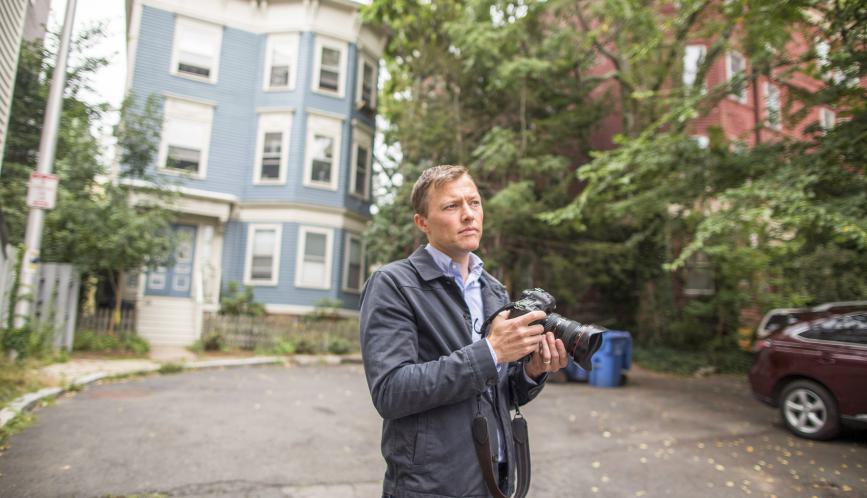HCEO's new three-question series will regularly publish quick Q&As with members who will discuss their work, frontiers in the field of inequality that could use more knowledge, and advice for emerging scholars. This inaugural Q&A is with Matthew Desmond, a member of the Inequality: Measurement, Interpretation, and Policy network and a 2015 MacArthur Fellow. Desmond’s research interests include poverty, housing, urban sociology, and race and ethnicity. His book, Evicted: Poverty and Profit in the American City was released March 1.
Please describe your area of study and how it relates to current policy discussions surrounding inequality?
We’ve reached a point in America today where most low-income renting families are spending most of their income on housing. About one in four of those families are spending 70 percent of their income on rent and to keep the lights on. You look at something like that and the prevalence of evictions in our cities, and the consequences of that, and you come to the conclusion that we can’t fix poverty in this country without fixing housing.
What are areas in the study of inequality most in need of new research?
We don’t know as much as we need to about the private rental market where the vast majority of low-income families live. I think there are really basic questions about why cities are becoming so unaffordable, how landlords set rent, the relationship between political actors and business actors, and the deep kind of mark that housing is leaving on low-income communities. There are so many questions that are left unanswered. I hope that folks engaging with this book start addressing some of them. The problem is big and it’s vast. We need a lot of people at the table. We need economists at the table. We need psychologists, sociologists, journalists, policymakers. I think there’s a lot more room for folks from the research community, from the public policy community to address these issues.
What advice do you have for emerging scholars in your field?
My advice is don’t be afraid to take on the really big questions, some of our most morally urgent questions and take a shot at trying to use all the tools we have available as researchers to make a difference to change public conversation, public understanding, and the law. I don’t think we have to choose between being successful in rigorous academics and trying to make a difference. I think rigorous work targeted toward some of our most trenchant problems can really make a difference for how people understand those problems and policymakers. This is exactly why I‘m a proud member of this network. There are so many people involved in these issues.



